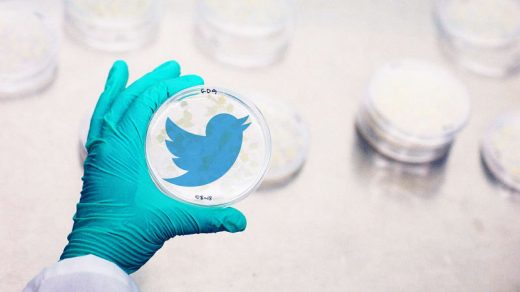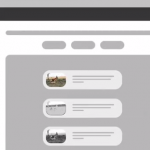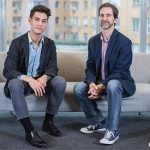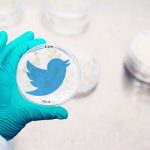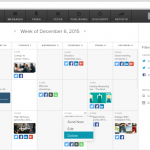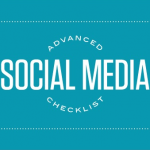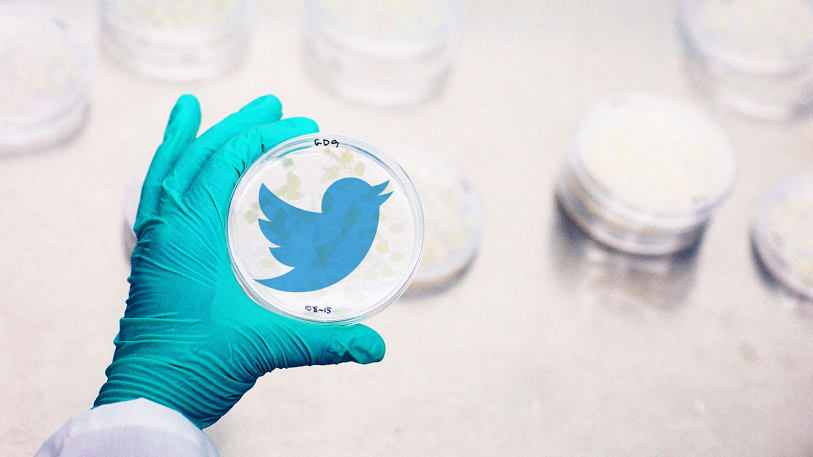Why We Need Scientists On Social Media, Now More Than Ever
Beth Linas has a reputation among her scientific colleagues for her love of social media. “Oh I’m ridiculed,” she tells me, via Twitter direct message (of course). “Not by everyone, but by some old school folk.”
Linas, an infectious disease epidemiologist, tweets regularly about topics that she’s passionate about, whether it’s mobile technology or public health. During her fellowship year at the National Science Foundation, she is leveraging social media to help debunk theories that aren’t scientifically validated, such as that vaccines are linked to autism, as well as improve health literacy and inspire more women to train for STEM careers.
Increasingly, young scientists like Linas regard Facebook, Twitter, and blogging platforms as a key part of their day job. Not everyone is on board. Linas stresses that the ridicule from her colleagues isn’t mean-spirited, but it still demonstrates some fundamental discomfort with engaging with the public. Social media is viewed by many, she says, as time spent away from more important work, like peer-reviewed research.
Experts say that academics have to walk a fine line, even today. Many scientists today will encounter a “cultural pushback,” says Tim Caulfield, a health policy professor at the University of Alberta Caulfield, if they’re viewed as being too “self promotional.” Carl Sagan, for instance, is remembered for his television persona but many forget that he was also a prolific scientific researcher. Scientists on social media also risk alienating colleagues or university officials if they tweet or post about a controversial topic that doesn’t reflect well on their institution. For Prachee Avasthi, assistant professor of anatomy and cell biology at University of Kansas Medical Center, the biggest risk is to protect her reputation within the scientific community, so she watches what she tweets. “[Another] scientist might have power over me in that they might review my grants or papers.”
Despite the risks, experts who have studied the trend see this as a way to increase public support for the sciences at a time when the Trump administration is questioning facts and threatening funding for basic research. “I tell academics that social media is now the top source of science information for people,” says Paige Jarreau, a science communication specialist at Louisiana State University. “And they are a trusted voice for people that don’t have that background and literacy.”
Surveys show that public confidence in the scientific community has remained stable since the early 1970s, and that they are more trusted than public officials and religious leaders. For that reason, Caulfield argues that it’s meaningful for scientists to be part of the conversation even if they have far fewer followers than celebrities peddling pseudo-science, such as actress and Goop founder Gwyneth Paltrow (Caulfield is the author of a book titled, Is Gwyneth Paltrow Wrong About Everything?).
A trusted voice can be very influential, he says. “[Scientists communicating online] is an important part of pushing back against misinformation.” Caulfield says he has been personally criticized for “spending so much time tweeting,” but he’s noticed a shift in recent years. Now, he says, students, scientists, and universities are approaching him to advise them on how to communicate their work to the public. At universities and medical centers, including Louisiana State University, science departments are now hosting regular workshops to encourage scientists to be present on social media.
For Dana Smith, a science writer and communicator who previously worked at the Gladstone Institutes, it’s no longer an option for scientists not to engage with lay audiences. “It’s becoming a moral obligation,” she says, with much of their research funding coming from taxpayers. For this reason, she personally made the switch from academia–she was a doctoral psychology researcher at the University of Cambridge–to communications. She doesn’t think everyone needs to be the “next public face of science,” but she encourages researchers to try their hand at the occasional blog post or tweet.
The question of whether scientists should take the next step and engage in activism–many are planning their own march on Washington — and/or run for political office is up for debate. Some, like Smith, see it as a positive trend. But Caulfield warns that scientists might lose their status in the public eye. “When they get closer to an agenda,” he says, “I think that trust might dissipate.
10 Scientists to follow on social media (as recommended by scientists)
@dgmacarthur
Daniel MarArthur, a geneticist who runs the MacArthur lab and describes himself as “committed to to open data and software.”
Follow for musings about: genetics, science funding, open access
@AstroKatie
Katherine Mack, a theoretical astrophysicist and occasional freelance science writer
Follow for musings about: the universe, politics, science education
@HopeJahren
Anne Hope Jahren, an American geochemist and geobiologist at the University of Oslo
Follow for musings about: climate change, Scandinavia, political news
@phylogenomics
Jonathan Eisen, an evolutionary biologist at University of California, Davis
Follow for musings about: the microbiome, genetics, political news
@ClimateOfGavin
Gavin Schmidt, a climatologist, climate modeler ,and director of the NASA Goddard Institute for Space Studies in New York
Follow for musings about: climate change, current events, science communication
@EricTopol
Eric Topol, a cardiologist, geneticist, and digital medicine researcher.
Follow for musings about: the future of medicine, digital health, mobile medical technology
@AlongsideWild
David Steen, an assistant research professor of Wildlife Ecology & Conservation
Follow for musings about: wildlife, science communication, conversation research
@bradleyvoytek
Bradley Voytek, an assistant professor of computational cognitive science and neuroscience at UC San Diego.
Follow for musings about brain oscillations, computer science, San Diego
@seanmcarroll
Sean Carroll, a cosmologist and physics professor specializing in dark energy and general relativity
Follow for musings about: the origins of life, answers to basic science questions, philosophy
@Fishguy_FHL
Adam Summers, a professor of biology and aquatic and fishery sciences
Follow for musings about: fish, bio-inspired design, science communication
@BrennanSpiegel
Brennan Spiegel, director of Cedars-Sinai Health Services Research
Follow for musings about: medical technology, wearables, the future of medical education
@WhySharksMatter
David Shiffman, a marine conservation biologist and science writer
Follow for musings about: why sharks need love, climate change, nerdy science jokes
Fast Company , Read Full Story
(48)

